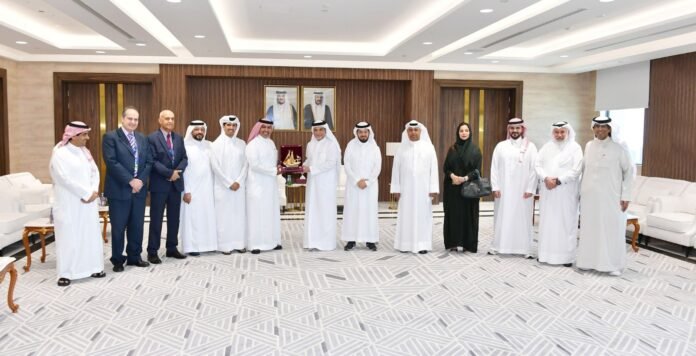In a significant step forward, Qatar Chamber recently hosted a joint meeting with Saudi Arabia’s Asharqia Chamber. The meeting aimed to boost collaboration in food security and environmental sustainability.
Held at the Qatar Chamber headquarters, the session brought together key representatives from both chambers. Mohamed bin Ahmed Al-Obaidli, Chairman of Qatar Chamber’s Food Security and Environment Committee, led the Qatari side. Meanwhile, Faheid bin Quryan Al-Qahtani, Chairman of Asharqia’s Environment Committee, represented Saudi Arabia.
Moreover, the meeting was attended by Hamad Ali Al-Marri, Director of Committees and Business Councils Affairs at Qatar Chamber, along with several members from both committees.
During the session, participants discussed practical ways to enhance Qatar Saudi cooperation. In particular, they focused on food production, environmental protection, and cross-border investments. The committees also reviewed their current activities and explored solutions for shared challenges.
Speaking at the event, Al-Obaidli emphasized the vital need for collaboration. He noted that Qatar offers various incentives for investors interested in food security and sustainability. Furthermore, he encouraged Saudi investors to take advantage of Qatar’s business-friendly environment.
In response, Al-Qahtani warmly welcomed Qatari investment in Saudi Arabia. He also pointed out that both nations have aligned interests in environmental innovation. Importantly, he called for more joint ventures that bring economic and environmental benefits.
As a result of the meeting, both sides agreed to form a joint task force. This group will monitor progress, coordinate initiatives, and ensure long-term cooperation. In addition, participants underscored the importance of regular communication. They recommended more frequent meetings, shared research, and removing any barriers to collaboration.
Ultimately, the gathering reinforced a shared vision. Through active dialogue and structured planning, Qatar Saudi cooperation can drive regional progress. Looking ahead, both chambers plan to organize follow-up sessions. These efforts aim to transform discussions into actionable projects and lasting partnerships.


